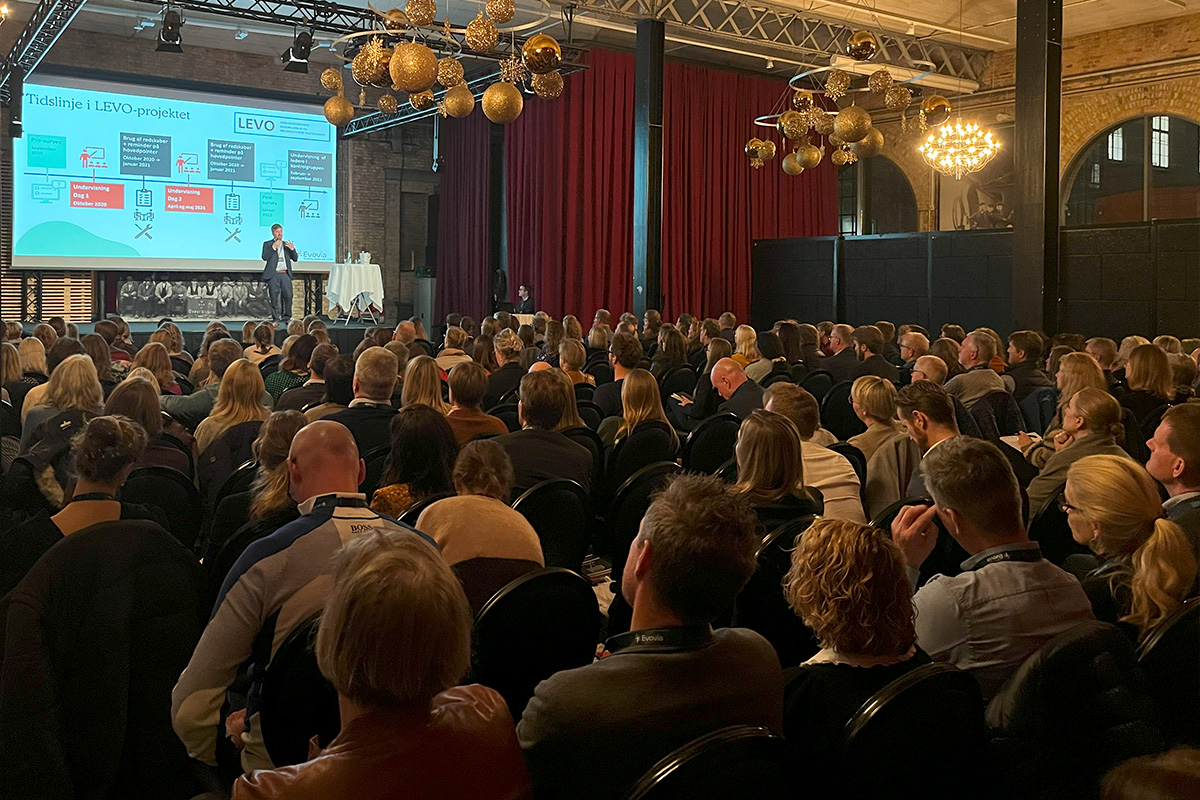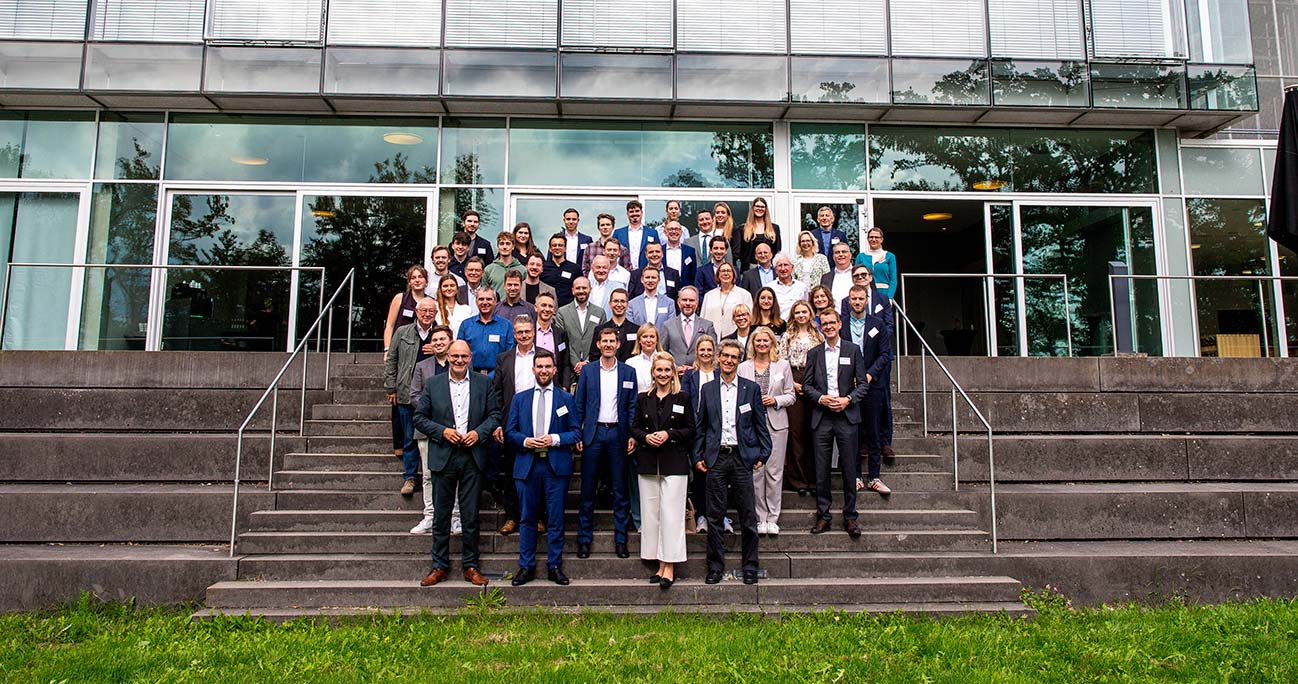We experienced tremendous support for our two evening events last week, and we are delighted by how well the presentations were received.
More than 300 people interested in leadership attended the two events, which featured presentations from Christian Bøtcher Jacobsen and Lotte Bøgh Andersen from the Crown Prince Frederik Center for Public Leadership, as well as a presentations from Development Director Jørgen Skovhus Haunstrup.
The events were based on the LEVO research project, which forms the foundation for Jørgen’s PhD project, which he defended earlier in November. At the events, attendees could learn more about the findings and how they can help organisations boost the outcome from employee development programmes through dialogue and with the help of tools.
"It was truly meaningful to be able to present new knowledge from the research project, with a focus on how it is used and how it can make a difference for leaders and employees. And it was absolutely fantastic to experience such great engagement! The participants brought many valuable reflections that helped elevate the events – and we are really looking forward to exploring them further and incorporating them into our work," says Development Director Jørgen Skovhus Haunstrup.
There were several relevant points from the speakers:
- Lotte Bøgh Andersen and Christian Bøtcher Jacobsen began by providing practice-relevant insights from leadership research, including the importance of regularly training leadership.
- After this, Jørgen Skovhus Haunstrup presented insights into why vision-driven leadership is important to prioritise, and how the LEVO project shows that development dialogues can increase meaning, autonomy, and engagement.
- Jørgen also shared his own experiences of coming home from leadership courses feeling highly motivated – but how short-term deadlines quickly steal focus when returning to everyday work.
- This was the starting point for a presentation of the LEVO project’s findings on how leadership tools can increase the impact of leadership training by supporting desired behaviours in the specific situations where they are needed – during the actual development dialogue.
At the events, there were three reflection breaks where participants could discuss their experience on the topics of the presentations and share insights from their own organisations. Participants were encouraged to post their reflections on a digital wall, where they could also interact with each other’s comments.
There was truly great support for this, and it was clear that the presentations sparked a lot of thought, with several hundred posts and comments.
Selected comments from the reflections:
“We use digital tools extensively to engage and nudge leaders. Our leaders have busy workdays, and in reality, things and ‘HR’ don’t break through unless we anchor it across several fronts. We will never be able to gather all leaders for a training event or ensure that every leader carefully reads the same long email. So digital tools are extremely important.”
“There is very little space for dialogue about visions. In day-to-day work, short-term goals, results, and legal compliance take up the space. I talk to employees about visions in brief moments. I would like to make more room for that.”
“Development dialogues are of great importance when conveying, for example, a strategy for the coming years. There will also be focus on dialogue both to and from the organisation – without each other’s perspectives, we cannot reach the goals of the strategy. One challenge can be if you do not have a clear message (for example, if political agendas change direction). In our case, the politicians reversed a central decision to change direction, which had not been through a dialogic process. Employees were understandably frustrated, and we started the process from scratch to create commitment and a basis for implementing the decision.”
“We are very digital in everything that concerns operations. We have data on everything. When it comes to leadership, we are not digital – far from it. I believe that using digital tools for leadership could have a significant effect for us. We have many leaders who have been promoted within the organisation and who have a very practical, task-oriented approach to leadership. A digital tool would make it easier for them and provide a great opportunity to put leadership on the agenda. My concern is that we end up hiding behind a screen and forget to see reality. We have many hourly-paid employees with no education in the organisation. How do you make digital tools easy and visible for them? It’s important that it creates value at all levels. Fascinating to explore further.”
Images from Aarhus:
Images from Copenhagen:

.png)
.png)
